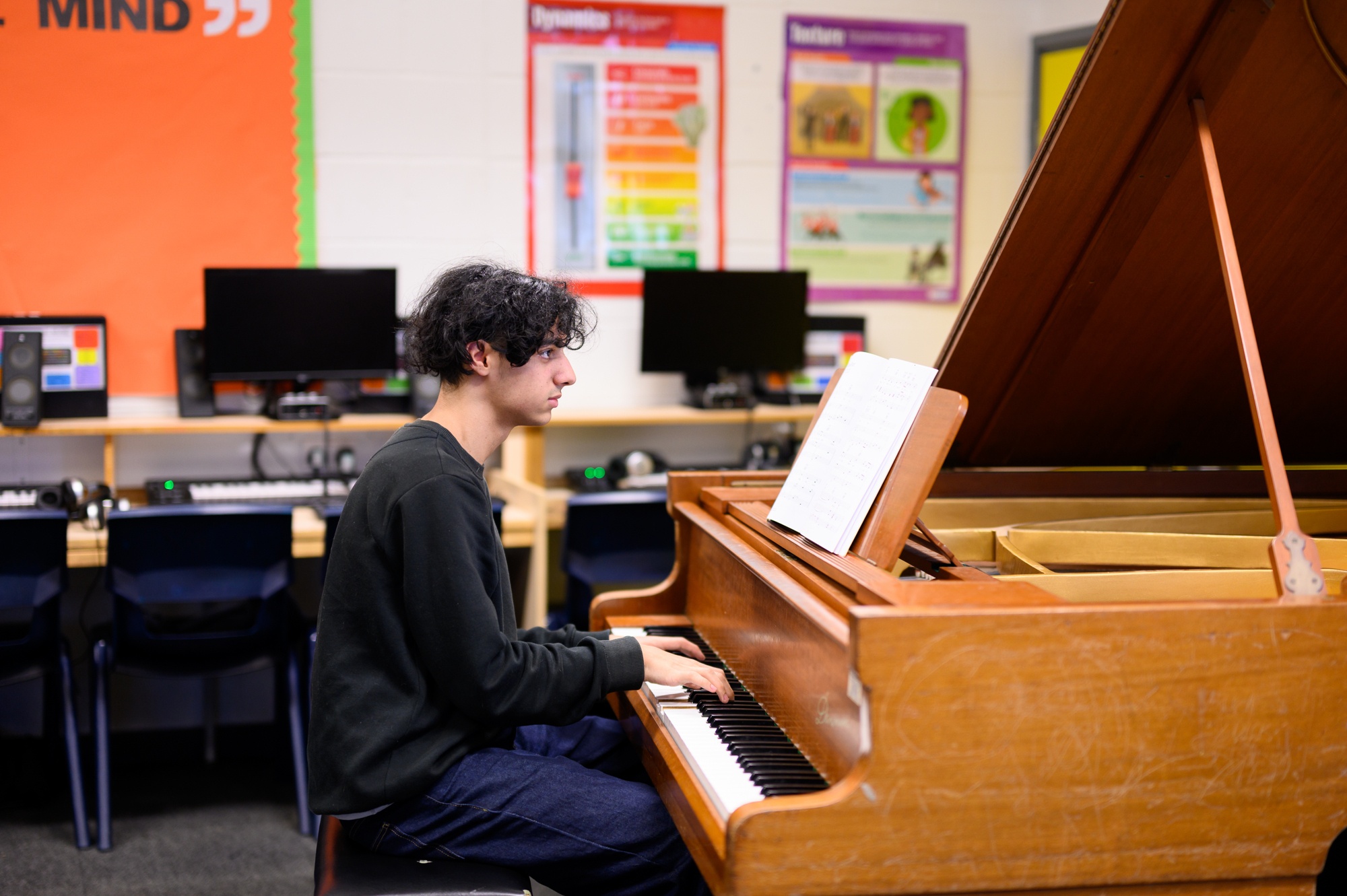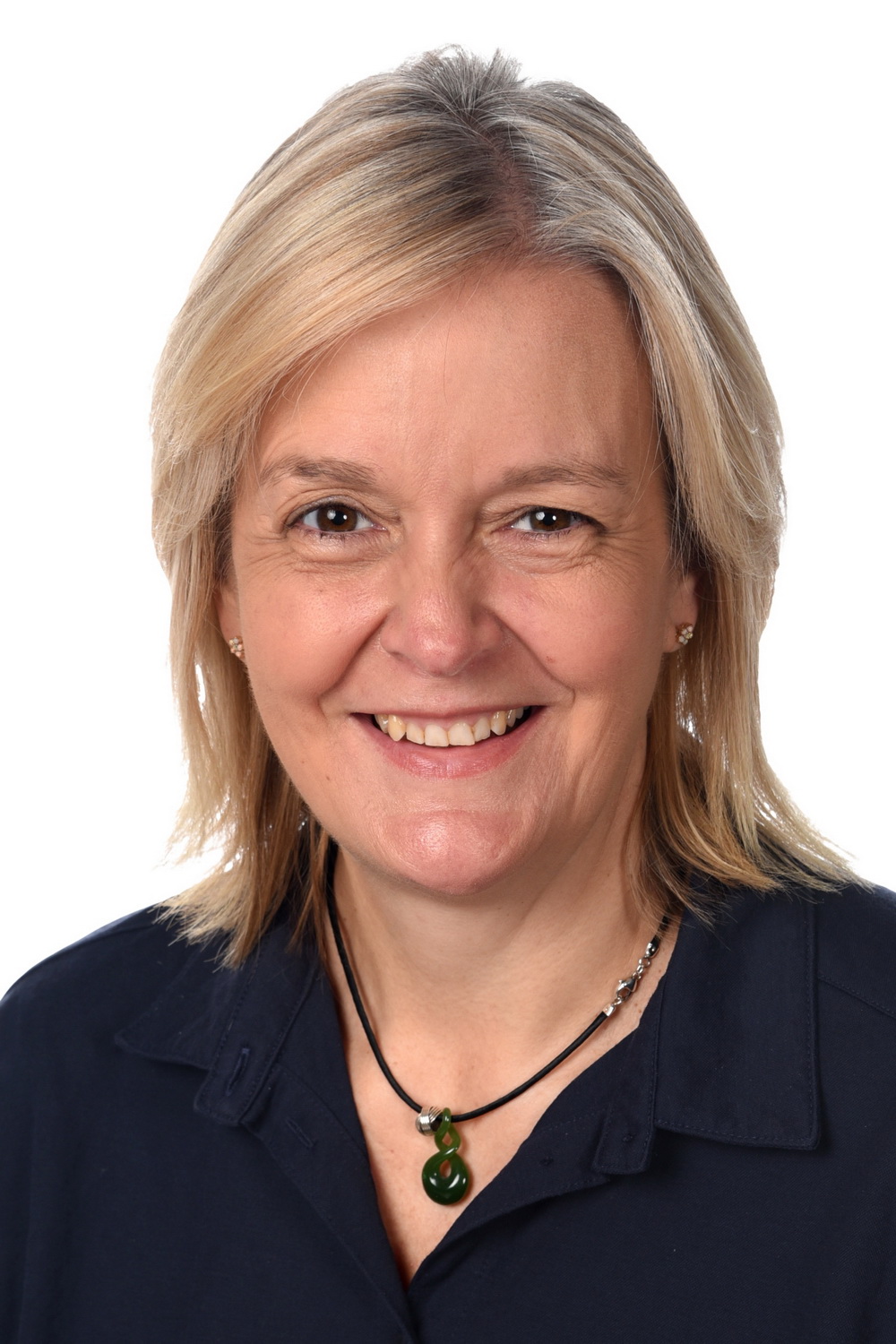Music
Music A Level allows you to further explore your skills in performance and composition, as well as learning how to analyse, listen to, and study a range of music in depth. Our focus will be on the Western Classical Tradition including the development of the Symphony, Twentieth Century Classical music, as well as of Rock and Pop genres from 1960s onwards through the study of set works and wider listening.
The course gives you a holistic understanding of music, allowing you to investigate, analyse and evaluate music and its features. It helps you learn to perform, compose and appreciate different types of music, develop critical and creative thinking, cultural, aesthetic and emotional awareness, and the ability to make music individually and as part of a group.

Entry Requirements
GCSE Music Grade 5+ and the ability to ready stave notation fluently. You should be a minimum of Grade 5 standard or equivalent on your chosen instrument of study or voice. Grade 5 Theory would be an advantage.
Content
The Eduqas A Level has three components:
| Component 1: |
Performing (a recital performance assessed by an external examiner) |
| Component 2: | Composing (a portfolio of both free choice and commissioned compositions) |
| Component 3: | Listening and Appraising (a listening and appraising exam based on the Areas of Study) |
You are able to choose which Component from Performing or Composing will be your specialism and gain you the highest percentage of marks.
In addition to developing your existing performance and composition skills, you will begin an in-depth study of the Western Classical Tradition of Music, specifically focusing on the development of the symphony and including the study of two set works. You will also study some 20th Century Classical Music styles as well as Rock and Pop Genres from the 1960s to the present.
In Year One you will study Rock and Pop Music Styles, the development of the symphony in Classical and Romantic music, your first Symphony set work, as well as complete your first free choice composition.
In Year Two you will study Twentieth Century Classical music and two set works from this area of study. You will continue to revisit Year One topics for revision and complete your symphony studies. This year you will complete a composition commissioned by the exam board which will be a reflection of the western classical tradition.
Assessment
40% Examination, 60% Coursework
Am I right for the course?
If you are passionate about developing your composition skills, a confident performer, enjoy exploring and analysing varied pieces of music and can work independently to manage coursework deadlines then this is the course for you.
Course Highlights
| Hands-on Experience: | Much of this course is taught in a practical manner, and you are encouraged to develop your skills through additional instrumental lessons and collaborating with like-minded musicians. |
| Personal Development: | Explore and develop your knowledge of music and develop further skills as a musician, as well as getting involved in the opportunities for wider musical development beyond the classroom. |
| Enrichment: |
There are many opportunities for musicians to participate in performances in our concerts and school production band, trips to see Symphony performances and an annual trip to Glyndebourne Opera. Students are also encouraged to attend gigs and performances of live music independently. We often have VI Form groups performing in the wider community doing outreach at Christmas in local Nursing Homes or Primary schools. |
Where next?
Whilst Music can be a useful subject for Arts and Media courses at university, the most obvious degree pathway is going on to a degree in Music, which can lead to a range of exciting career options, including becoming a professional musician, a sound technician, a teacher, or a private tutor, music producer, music therapist, sound designer, sound engineer and many more.
FAQ's
- Do I have to read music notation to study A Level?
Yes! You will be expected to read treble and bass clef notation. You will also be expected to learn the skills to be able to decode other clefs and notation forms as well. - Do I have to perform live?
Yes! Your final performing assessment will be a recital in front of a visiting examiner. It can be as a soloist or as part of a music ensemble. - Can I study Music A Level if I don't have a GCSE?
Having a GCSE in Music is an advantage, but in special circumstances, when a student has reached a minimum standard of Grade 6 on their chosen instrument or Grade 5 theory, a meeting will be offered to discuss your suitability for the course. There may be some independent study required over the summer before starting to make sure that you are up to speed.
Music A Level Teaching Staff

Subject Leader for Music
d.betts@stwilfrids.com

Music Teacher
r.marr@stwilfrids.com
